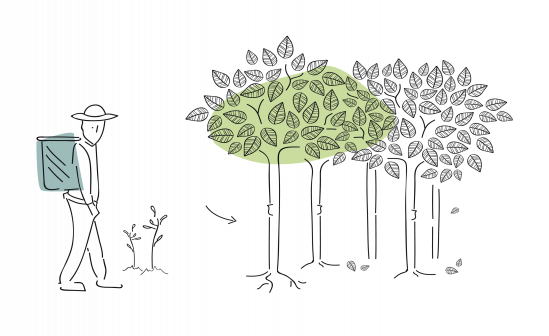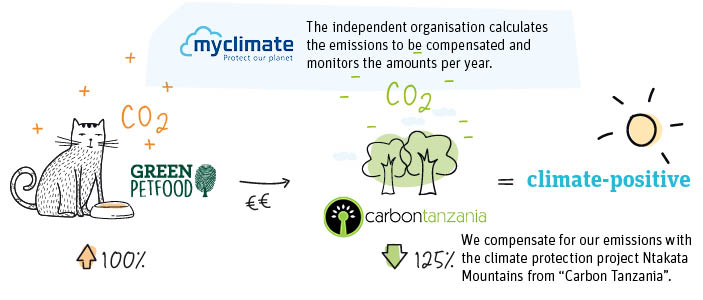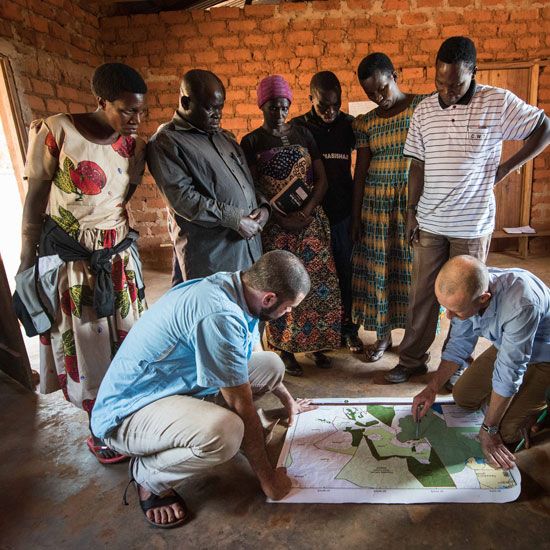Protecting our climate through CO2 offsetting
You can't smell it, and you can't see it...but this inconspicuous molecule has the dubious accolade of being the cause for many of our planet's current climate catastrophes. We're talking about carbon dioxide, of course - or CO2 for short.
We, too, emit CO2 into the atmosphere through the production and distribution of our pet food. This isn't ideal. On the other hand, there's not much we can do to avoid this completely. Nobody can live without generating CO2 emissions, and almost every aspect of our everyday lives contributes to this. Every journey to the bakery, electricity, meat farming, and transportation. Even our beloved four-legged friends release plenty of CO2. Is this a reason to bury our heads in the sand? Of course not!
We believe that protecting our planet's climate concerns us all. It concerns us as a brand, but also as consumers. For this reason, we strive to keep our CO2 emissions as low as possible. And because we are aware of our responsibilities, we offset the rest of our emissions completely.
We can all do our bit to ensure that the worst consequences of climate change, such as flooding and heat waves, are not exacerbated.
Our Aspiration :

How does CO2 offsetting work?
The extent of our climate-impacting emissions is calculated by the independent organisation myclimate. Statistically determined variables, such as the fuels used, raw material cultivation and processing methods constitute the basis for these calculations. These are multiplied with so-called emissions factors to determine a CO2 equivalent for each of our products.
Our partner Carbon Tanzania determines locally how much CO2 a tree or forest absorbs through photosynthesis. By working together with the local people to ensure that the forest is protected, we can neutralise our emissions and safeguard important habitats for endangered species.

From the ingredient to the bowl
We offset all CO2 emissions through our UN REDD+ forest conservation project 'Ntakata Mountains' by Carbon Tanzania - and we do it at 125%.
These figures are calculated, verified, and substantiated by myclimate, a non-profit foundation for effective climate protection and voluntary compensation measures. You can find our certificate here.
For more information, visit: MyClimate.

Our forest conservation project in Tanzania
In the far west of this landlocked state in East Africa, biologist Marc Baker and his non-profit organisation Carbon Tanzania have set up an initiative whereby the conservation of forests, flora and fauna not only improves the climate, but also contributes towards a whole range of additional positive goals that we consider worthy of supporting.
The habitat of the largest wild chimpanzee population in East Africa is safeguarded for example, and many other partially endangered species such as forest elephants are also protected: importantly, however, the local population also benefits directly from the project. The Ntakata Mountains are home to roughly 17,000 people, who are able to develop their region independently, in harmony with nature, through the CO2 offsetting project.
GO TO THE PROJECT





